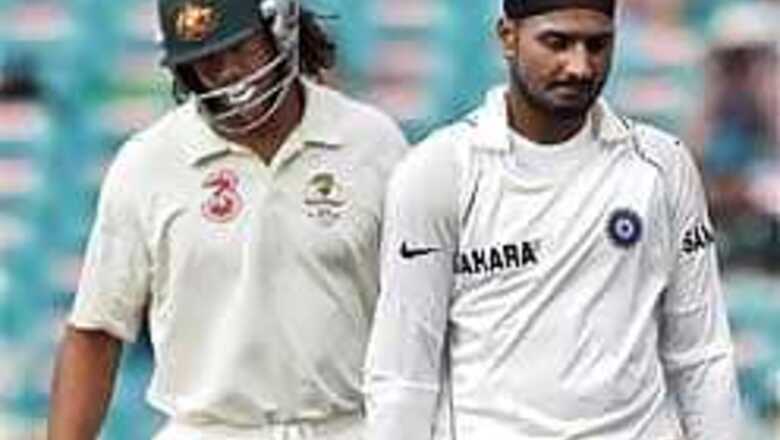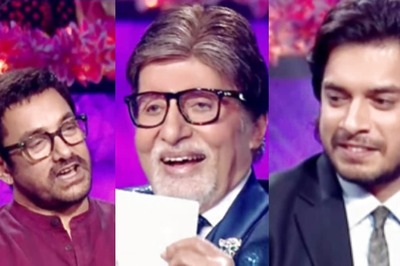
views
Sydney: The cricket world is in crisis, the multi-million dollar India tour of Australia is in jeopardy, and bilateral ties are being tested, as charges of racism, cultural divisions and unsporting behaviour soil cricket's image.
Indian fans are burning effigies of umpires after incorrect decisions contributed to the country's defeat in the second test against Australia in Sydney on Sunday, and an Indian player was convicted of racism for calling an Australian player a "monkey".
India is refusing to play rest of the games and headed off to Bondi Beach on Tuesday for a game of volley ball with lifesavers, insulted by the umpires' decisions, racism charge, and allegations an Australian player called Indians "ba%&^*ds" during the test.
Australian Prime Minister Kevin Rudd called on Tuesday for cricketing authorities to settle the matter "at the first available opportunity", while the country's foreign minister said bilateral ties would survive the crisis but called for calm.
"One of the things that we do share in terms of cultural or sporting activities is that both nations and both peoples have a great love of cricket," said Foreign Minister Stephen Smith.
"I don't see any problems in the relationship arising through the test series. We all have strong views as cricket fans about test matches. I think, is the time for cool heads to prevail."
Australians and Indians follow cricket with fanatical fervour. National pride is at stake during test matches. But while cricket unites both nations, the cultural divide between the two seems to be escalating the crisis between cricket's two most powerful nations.
When Indian spinner Harbhajan Singh called Australian Andrew Symonds, of British and West Indian origin, a "monkey" it was declared racism by cricketing officials and he was suspended for three matches.
Indians argue that "monkey" is not racially insulting in their country. The monkey god Hanuman in India is a hero — a provider of courage, hope, knowledge, intellect and devotion.
Indian officials have appealed the decision, arguing umpires took Symonds' word over Harbhajan's, but Australia claims Harbhajan has abused Symonds during previous matches.
"The Indian board realises that the game of cricket is paramount but so too is the honour of the Indian team and for that matter every Indian," said the board in a statement.
PAGE_BREAK
Indian fans have home burnt effigies of the second test umpires. "Indian team, come back home," chanted fans in Jammu.
"The slur of racial abuse on Harbhajan Singh, that has assumed larger proportions in this country, because we have been an anti-racist country. If he is hanged that is what India is not willing to accept," former Indian test player and now commentator Navjot Singh Sidhu told Australia's Sky television.
Further angering India is a claim that an Australian player called the Indian team "ba%&^*ds" — in Australia the word ba%&^*ds is often used affectionately by laconic Australians, but in India it carries a great slur.
"This is a serious term," said India team manager Chetan Chauhan. "It has a lot of bad meanings back in India. In India, we do not have children without getting married. It is a taboo and it is not accepted in the society."
The crisis is also about the apparent "gentleman ethos" of cricket and alleged unsportsman-like behaviour.
Many Australian fans, have joined Indian fans, in slamming their team after some players accepted the incorrect umpire decisions and refused to honourably concede they were out.
"Like most Australians, I felt somewhat empty and embarrassed at Australia's 'win' in the second test against India. This is clearly a victory that we cannot celebrate," Stuart Gardiner wrote in a letter in The Australian newspaper on Tuesday.
Australia's cricket team has a reputation for playing hard, and for sledging or abusing opponents on the field, which many commentators say has annoyed the cricket world for years.
"The question that needs to be ask is: 'What turned fun-loving cricketers and fans from being good sportsmen on and off the field into overzealous, competitive, win-at-all-costs people?," Stephen Hagan from the University of Southern Queensland asked in an opinion article in The Australian.




















Comments
0 comment